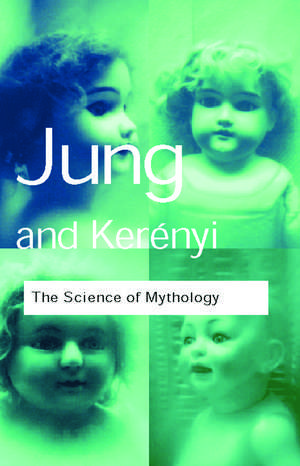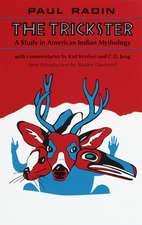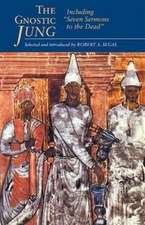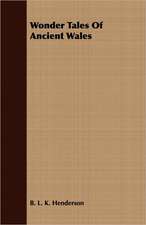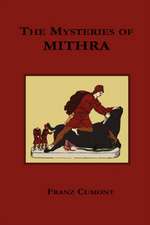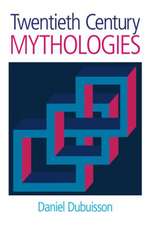The Science of Mythology: Essays on the Myth of the Divine Child and the Mysteries of Eleusis
Autor C. G. Jung, C. Kerenyien Limba Engleză Paperback – 11 oct 2001
When Carl Jung and Carl Kerenyi got together to collaborate on this book, their aim was to elevate the study of mythology to a science. Kerenyi wrote on two of the most ubiquitous myths, the Divine Child and The Maiden, supporting the core 'stories' with both an introduction and a conclusion. Jung then provided a psychological analysis of both myths. He defined myth as a story about heroes interacting with the gods. Having long studied dreams and the subconscious, Jung identified certain dream patterns common to everyone. These 'archetypes' have developed through the centuries, and enable modern people to react to situations in much the same way as our ancestors. From nuclear annihilation to AIDS and Ebola, we continue to engage the gods in battle. Science of Mythology provides an account of the meaning and the purpose of mythic themes that is linked to modern life: the heroic battles between good and evil of yore are still played out, reflected in contemporary fears.
Preț: 70.14 lei
Preț vechi: 87.68 lei
-20% Nou
13.42€ • 14.01$ • 11.11£
Carte disponibilă
Livrare economică 14-28 martie
Livrare express 27 februarie-05 martie pentru 18.54 lei
Specificații
ISBN-10: 0415267420
Pagini: 240
Ilustrații: 1 Illustrations
Dimensiuni: 129 x 198 x 13 mm
Greutate: 0.26 kg
Ediția:Revizuită
Editura: Taylor & Francis
Colecția Routledge
Locul publicării:Oxford, United Kingdom
Public țintă
General, Postgraduate, and UndergraduateNotă biografică
Carl Gustav Jung (1875-1961). Founded the analytical school of psychology and is responsible for bringing psychology into the twentieth century by developing a new theory of the unconscious.
Recenzii
'There is an abundance of interesting and occasionally suggestive detail ... and beyond all this there is the undeniable importance and fascination of the question of the archetypes which Jung puts before us.' - Sewanee Review
'It shows how two disciplines can be brought together to indicate further syntheses. The mythological material presented is excellent and the book will repay reading on this account alone.' - British Journal of medical Psychology
'He taught himself and men how to read the language of dreams as if they were the forgotten language of the gods themselves.' - Laurens van der Post
'It shows how two disciplines can be brought together to indicate further syntheses. The mythological material presented is excellent and the book will repay reading on this account alone.' - Michael Fordham, co-editor of The Collected Works of C.G. Jung
Cuprins
Editorial Note Prolegomena, by C. Kerényi 1 The Primordial Child in Primordial Times, by C. Kerényi 1. Child gods 2. The orphan child 3. A Vogul god 4. Kullervo 5. Narayana 6. Apollo 7. Hermes 8. Zeus 9. Dionysus 2 The Psychology of the Child Archetype, by C. G. Jung I. Introduction II. The psychology of the child archetype 1. The archetype as a link with the past 2. The function of the archetype 3. The futurity of the archetype 4. Unity and plurality of the child-motif 5. Child-god and child-hero III. The special phenomenology of the child archetype 1. The abandonment of the child 2. The invincibility of the child 3. The hermaphroditism of the child 4. The child as beginning and end IV. Conclusion 3 Kore, by C. Kerényi 1. Anadyomene 2. The paradox of the mythological idea 3. Maiden-goddesses 4. Hecate 5. Demeter 6. Persephone 7. Indonesian Kore figures 8. The Kore in Eleusis 9. The Eleusinian paradox 4 The Psychological Aspects of the Kore, by C. G. Jung 1. Case X 2. Case Y 3. Case Z. Epilegomena: The Miracle of Eleusis, References Cited; Index
Descriere
When Carl Jung and Carl Kerenyi got together to collaborate on this book, their aim was to elevate the study of mythology to a science. Kerenyi wrote on two of the most ubiquitous myths, the Divine Child and The Maiden, supporting the core 'stories' with both an introduction and a conclusion. Jung then provided a psychological analysis of both myths. He defined myth as a story about heroes interacting with the gods. Having long studied dreams and the subconscious, Jung identified certain dream patterns common to everyone. These 'archetypes' have developed through the centuries, and enable modern people to react to situations in much the same way as our ancestors. From nuclear annihilation to AIDS and Ebola, we continue to engage the gods in battle. Science of Mythology provides an account of the meaning and the purpose of mythic themes that is linked to modern life: the heroic battles between good and evil of yore are still played out, reflected in contemporary fears.
